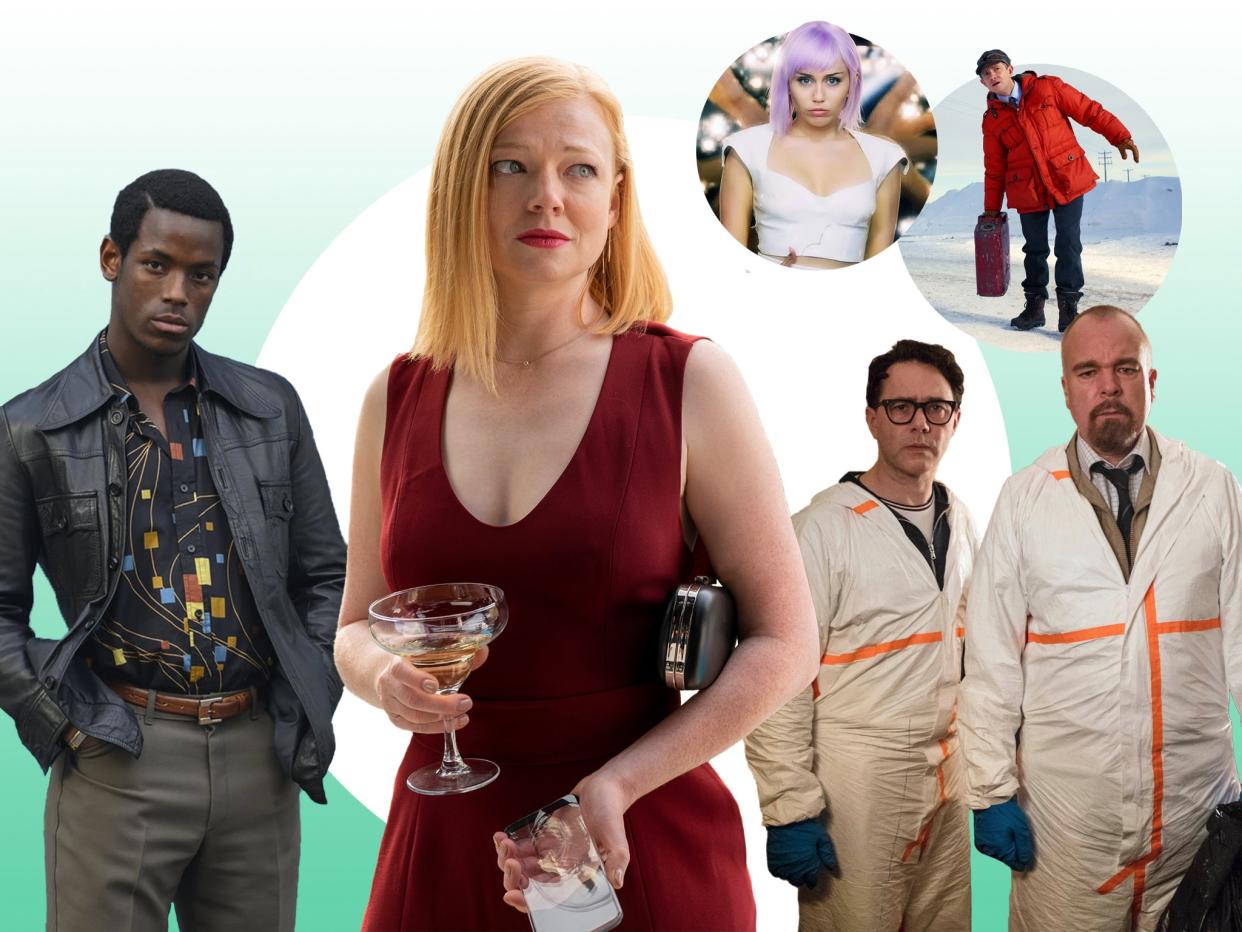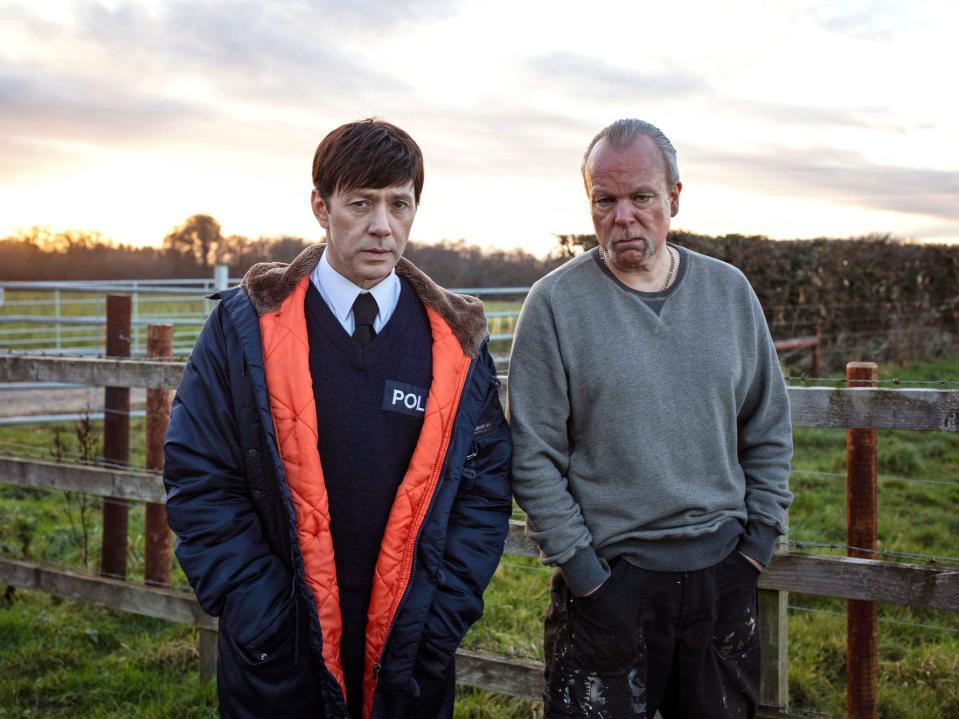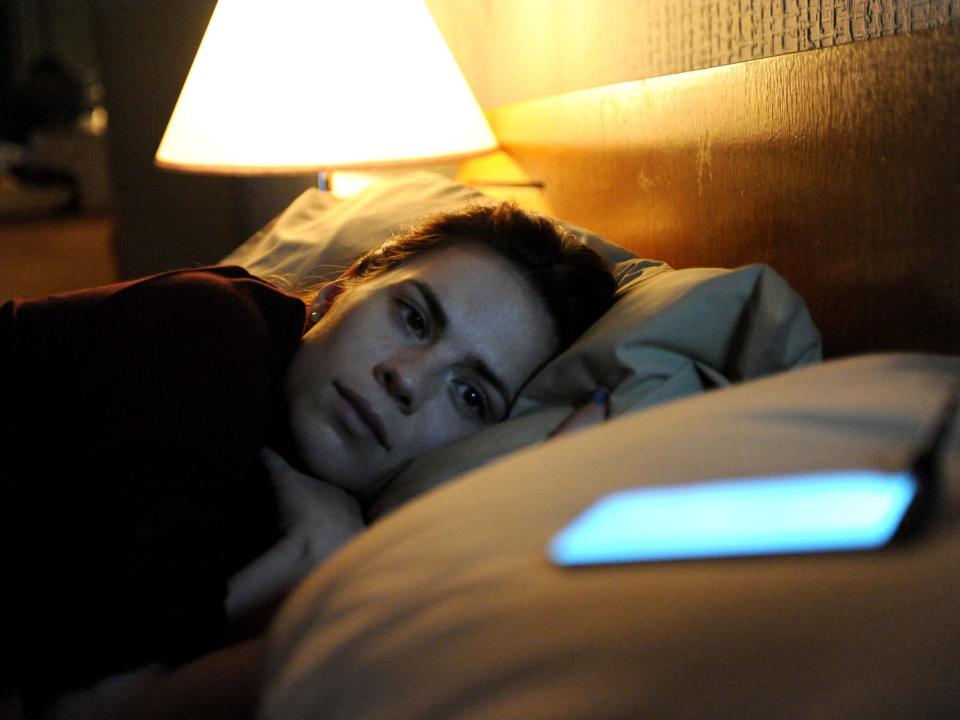From Black Mirror to Inside No 9: The maverick appeal of anthology series

There are words we hear again and again, repeated aloud like an old Homeric poem: “It’s really more of a 10-hour movie.” It never is, of course – it’s a TV show. But the eye roll-inducing soundbite has become a dogged cliché of the modern television era. Westworld, Picard and Jack Ryan are just some of the series which creators have deemed “10-hour movies”; Game of Thrones perhaps stretched the platitude to breaking point, when showrunner David Benioff characterised the show as a “73-hour movie” (eat your heart out, Lav Diaz). But while the phrase is often deployed as a marketing strategy – a shorthand for communicating how big a budget is or how gripping a narrative – there is one genre of TV to which the comparison often uniquely applies: the anthology series.
Anthology series – programmes that tell self-contained stories, changing their settings, characters, premises and even genres with each new instalment – are nothing new in the world of TV. Horror-tinged anthologies like Alfred Hitchcock Presents and The Twilight Zone (among many others) entranced viewers in the 1950s and 1960s; the self-contained episodes encompassed hammy schlock and deft, twist-filled storytelling, sometimes both at once. While the genre never completely disappeared, with series like Tales of the Unexpected and Tales from the Crypt becoming hits nearer the end of the 20th Century, the genre’s heyday had seemingly passed. By the late 1990s and 2000s, anthology series mostly survived in the public consciousness via nostalgia and parody (such as in The Simpsons’ Treehouse of Horror episodes). After the success of Charlie Brooker’s Black Mirror in 2011, however, the genre has resurfaced, risen from a crypt of its own.
Black Mirror infiltrated British pop culture like a guileful computer virus, combining the tropes of classic Twilight Zone-style anthologies with a dark modern sensibility and a keen eye for satire. Many of its alarming tech-nightmare premises would become news headlines within a matter of years; its revival on Netflix in 2016 became one of the streaming service’s flagship series.
“Television was heading in the direction of long season arcs,” Black Mirror creator Charlie Brooker told Den of Geek in 2016. “Breaking Bad and Mad Men are great and I was massively hooked on them, but I felt like there was room for a show in which you didn’t have to fill out a mythology over five seasons. I felt like saying ‘The End’ was becoming a novelty.”
One of the best, and most distinctive anthology series to emerge in recent years is Inside No 9, the BBC series created by Reece Shearsmith and Steve Pemberton (The League of Gentlemen). Episodes are sometimes comic, sometimes horrific, and almost always inventive – with the number nine incorporated into every story, usually via a house or door number. “I do love the format, I have to say, the more I've worked on it,“ Pemberton tells me. “How often are you actually surprised by watching television? We're very comfortable now with all these different styles of shows and genres, and it canjust be moving wallpaper. I think our advantage is that our audience is always on its toes.”

To him, the benefit is also one of the drawbacks: ”You reset at the end of every episode. What I love about that is that you are not having to talk about series arcs, padding out mid-series episodes. You can tell a beginning, middle and end of a story in one hit, so it's a short, sharp shock. The downside of course is for an idea that you might have been able to pad out and make a full series out of, you've dealt with in half an hour.”
Inside No 9 episodes often unfold like short plays; it’s no surprise that Pemberton credits the old BBC anthology series Play for Today (1970-1984) as a key inspiration. Like Alan Bennett’s Talking Heads – another anthology-style series which was recently revived for the BBC – this is TV at its most theatrical, a reminder of just how much overlap exists between the two mediums.
Other anthology series steer clear of theatre’s influence. Shows like the brilliant HBO stoner comedy High Maintenance and Netflix’s sexual foible anthology Easy play out like a series of short independent films, likewise HBO’s more erratic Room 104, and Amazon’s Modern Love. Some longerseries have more in common with full-length features. Small Axe, for instance, aired as an anthology series on the BBC last year, though there’s little about it that screams “television”. Steve McQueen, the 12 Years a Slave filmmaker who directed every episode of Small Axe, says he considered it a series of films, while individual entries were included on many critics’ end-of-year film lists. Similar efforts have been somewhat less successful; Matthew Weiner’s follow-up to Mad Men, the strange and little-seen anthology series The Romanoffs (2018), was criticised for its off-puttingly long episodes, many long enough to be films in their own right.
Soulmates is the latest entry in the current anthology boom, a collection of standalone sci-fi stories all set within the same universe: a world in which technology exists that can match a person with their destined soulmate with 100 per cent accuracy. Airing last year on AMC in the US before arriving next week on Amazon Prime UK, the series showcases an impressive cast that includes Sarah Snook, Kingsley Ben-Adir, Bill Skarsgård and Laia Costa.

“You get to tell a new story every time,” says William Bridges, describing his fondness for anthologies. Bridges co-created Soulmates alongside Brett Goldstein, and has previously written for Black Mirror. “New characters. New situations. You can switch up genres, take big shifts in tone from episode to episode... As a writer, that's exciting to me. With anthologies you can still get under a character's skin – you don't get the luxury of time with them, so you have to find creative ways to convey their emotional journey.”
There is another type of anthology series, the kind that switches up its story not every episode, but every season. The format includes prestige hits like Fargo and True Detective, as well as pulpier genre pieces like American Horror Story, The Haunting of Hill House/Bly Manor and Starz’s bold, experimental The Girlfriend Experience. These are not anthology series in the traditional sense, but a new spin on them: a curious hybrid for an age in which the lines between mediums are more porous than ever.
There are downsides to the anthology form. “There's always been a concern about anthology series, certainly a few years ago, because you're not following a group of characters – why would an audience be loyal to a show?” says Pemberton. “But with Inside No 9, we didn't really care about that. Everything changed so much with the advent of streaming, and is continuing to change. People will find shows that they love, and they'll pass them on to other people. We weren't quite so worried about finding an audience. And it's proved that you can do something where you're telling a different story every week. If people like the brand, for want of a better word, people will keep watching.”

The renewed appeal of anthology series is, perhaps, easy to explain. In a world where pretty much every big film release is reduced to a cog in some larger, many-geared franchise, there exists an unsated appetite for structured, self-contained storytelling. Perversely, some of the biggest franchises have started to cotton onto this appeal; both Star Wars and Marvel have their own anthology shows set to debut on Disney+ within the next few years.
Whether it’s a “10-hour movie”, a “collection of short films” or simply a movie in everything but name, it’s clear that anthologies are scratching some itch that the encumbered hand of cinema cannot. In an industry that’s historically risk-averse, where success is usually built on consistency and predictability, on showing up every week and delivering without fail, anthology shows are a maverick exception. They’re sitting at a card table, yelling “twist” with every new hand. Who wouldn’t want to watch that?
Soulmates debuts on Amazon Prime Video on 8 February. Previous episodes of Inside No 9 can be watched on BBC iPlayer, with further series currently in production
Read More
‘A good soundtrack builds a world’ – How music has transformed TV, from It’s a Sin to Bridgerton


